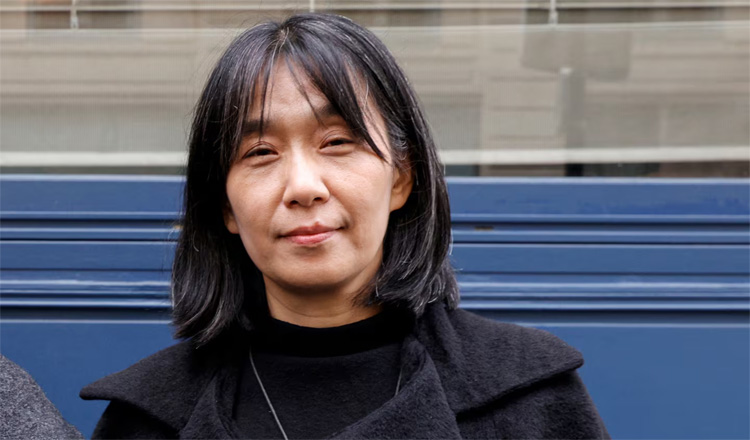The 2024 Nobel Prize in Literature was awarded to South Korean author Han Kang on Thursday “for her intense poetic prose that confronts historical traumas and exposes the fragility of human life.”
The Nobel Prize on its X handle said that Kang’s work is “characterised by this double exposure of pain, a correspondence between mental and physical torment with close connections to Eastern thinking.”
“In Han Kang’s short story (2012; ‘Europa’, 2019), the male narrator, himself masked as a woman, is drawn to an enigmatic woman who has broken away from an impossible marriage. The narrative self remains silent when asked by his beloved: “If you were able to live as you desire, what would you do with your life?” There is no room here for either fulfillment or atonement,” the Nobel Prize committee added.
Kang, 53, won the International Booker Prize in 2016 for “The Vegetarian,” an unsettling novel in which a woman’s decision to stop eating meat has devastating consequences.
Since 1901, a total of 116 Nobel Prizes in Literature have been awarded. Of these, four have been shared between multiple laureates. So far, 17 women have received this prestigious literature prize.
The Nobel awards opened on Monday with Americans Victor Ambros and Gary Ruvkun winning the medicine prize.
Two founding fathers of machine learning — John Hopfield and Geoffrey Hinton — won the physics prize on Tuesday.
On Wednesday, three scientists David Baker, Demis Hassabis, and John Jumper, who discovered powerful techniques to decode and even design novel proteins were awarded the Nobel Prize in chemistry.
Nobel Prize cash award
The Nobel Peace Prize will be announced Friday and the economics award on Oct. 14.
The prize carries a cash award of 11 million Swedish kronor ($1 million) from a bequest left by the award’s creator, Swedish inventor Alfred Nobel. The laureates are invited to receive their awards at ceremonies on Dec. 10, the anniversary of Nobel’s death.
Last year, Norwegian author Jon Fosse was awarded the Nobel Literature Prize “for his innovative plays and prose which give voice to the unsayable.”

